Opinion: Who won the Republican debate
- Oops!Something went wrong.Please try again later.
- Oops!Something went wrong.Please try again later.
- Oops!Something went wrong.Please try again later.
- Oops!Something went wrong.Please try again later.
- Oops!Something went wrong.Please try again later.
- Oops!Something went wrong.Please try again later.
CNN Opinion asked political contributors to weigh in on the third Republican presidential debate of the 2024 race. The views expressed in these commentaries are their own.
Errol Louis: GOP candidates are ignoring the elephant in the room
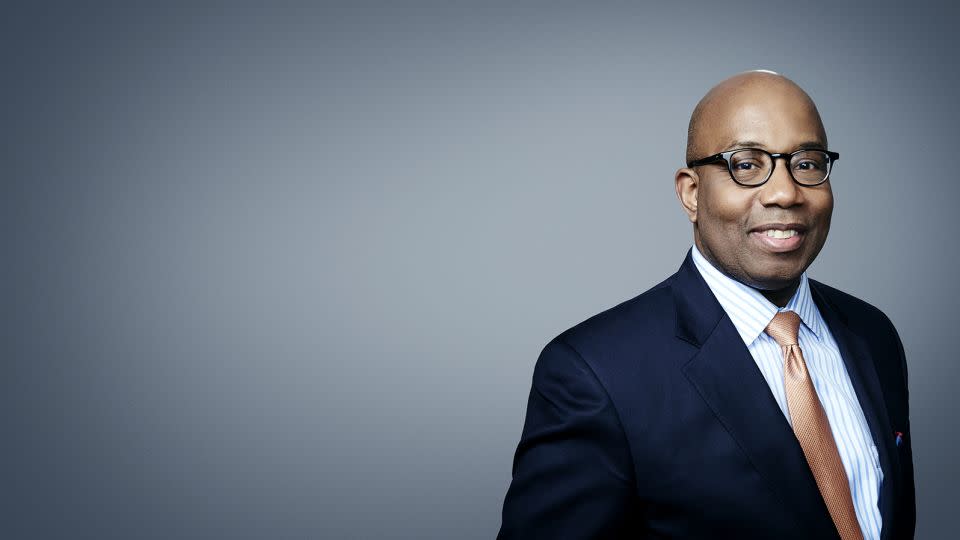
The wild, final Republican presidential debate of 2023, filled with vicious, personal attacks by the candidates, demonstrated once again that the nomination is Donald Trump’s to lose because all but one of his challengers are too frightened to take him on directly.
Chris Christie, the former governor of New Jersey, identified the stakes early in the debate by going directly after Trump. “The truth needs to be spoken. He is unfit,” he said. “There is no bigger issue in this race.”
But the other three candidates failed to follow Christie’s lead, and instead tore into one another.
“Nikki, you were bankrupt when you left the UN,” Vivek Ramaswamy said to Nikki Haley early in the debate, accusing her of enriching herself since leaving the government by her ties to big corporations. “You are corrupt.”
Later, in case anyone had missed the point, Ramaswamy held up a notepad on which he had scrawled “NIKKI = CORRUPT” in big letters.
Florida Gov. Ron DeSantis attacked Haley as well, accusing her of bowing to the wishes of her fast-growing network of big-money contributors.
“Nikki will cave to those big donors when it counts,” DeSantis charged.
Haley tried to shake it off: “I love all the attention fellas, thank you,” she responded, denying the allegations of corruption.
But like DeSantis and Ramaswamy, the former South Carolina governor never truly answered the spot-on observation by Christie about the former president and Republican frontrunner: “His conduct is unacceptable. He is unfit.”
With a commanding lead in Iowa, where caucus votes will be cast in 40 days, Trump has boycotted the debates, secure in the knowledge that his would-be rivals would largely avoid mentioning him — positively or negatively — in every debate.
“This is the problem with my three colleagues: They’re afraid to offend Donald Trump,” Christie said, in the most clear description of the stakes. “You have to be willing to offend with the truth.”
For all the insults and attacks, the candidates other than Christie did their best to avoid offending the front-runner. It was, collectively, their one clear success.
Errol Louis is a political anchor of Spectrum News, a network of local news channels.
Geoff Duncan: Haley’s success continues – but it’s far from enough
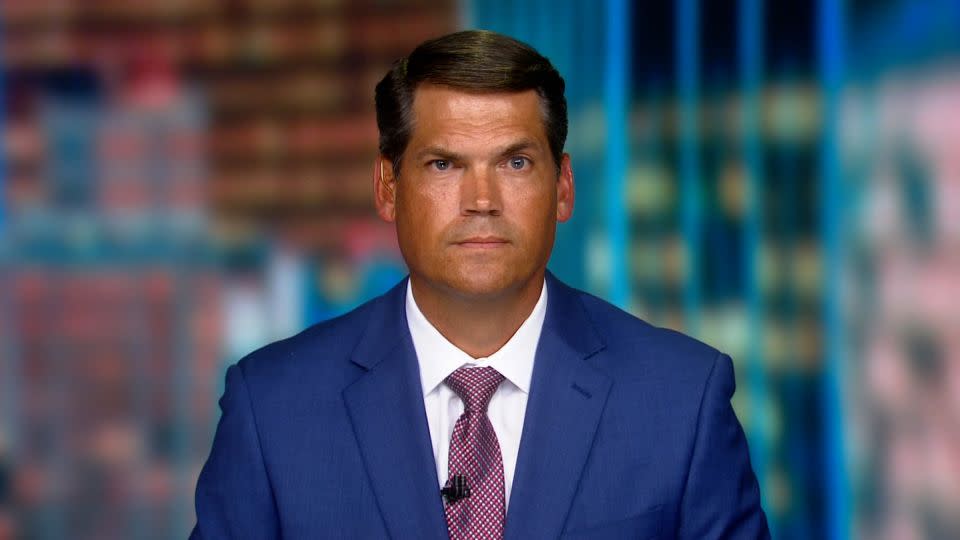
Two things were true heading into Wednesday night’s GOP fourth and final presidential debate: former US Ambassador Nikki Haley had momentum and former President Donald Trump remains the frontrunner, despite his legal challenges. After this debate, it seems clear Haley knows ignoring Trump is not an option and she is preparing to take him on.
In two of the three early states, Haley has emerged as the clear second place candidate to Trump. In Iowa, a Des Moines Register/NBC News/Mediacom Iowa poll showed Haley and Florida Gov. Ron DeSantis tied at 16%, after a 10-point surge from Haley, and Trump with a 27-point lead. In New Hampshire, a University of New Hampshire/CNN poll last month put Haley at 20% and DeSantis at 9% – and Trump at the top with 42%. In South Carolina, a CNN poll conducted by SSRS in October showed Trump at 53% and Haley at 22%, double her nearest competitor.
Her success made her an immediate target. As Haley deflected broadsides from DeSantis and Vivek Ramaswamy, she also turned her fire toward Trump, criticizing him by name on issues important to GOP voters, including China and spending.
To be sure, Haley could do more to stand up to Trump. No candidate in the race has been willing to take on the former president with more vigor than former New Jersey Gov. Chris Christie. As he pointed out, Trump is an “angry, bitter man,” and he rightly took his competitors to task for indicating that they could support even a convicted Trump in a previous debate.
Two things are necessary for Republicans to dethrone Trump: consolidation of the field and a willingness to take on the frontrunner. We’ve achieved the former – Wednesday’s debate was half the size of the fourth showdown in 2015. Let’s hope this matchup marked the start of the latter.
Geoff Duncan, a CNN political contributor and Republican, served as Georgia’s lieutenant governor from 2019 to 2023.
Kate Bedingfield: Biden got a lot of good fodder
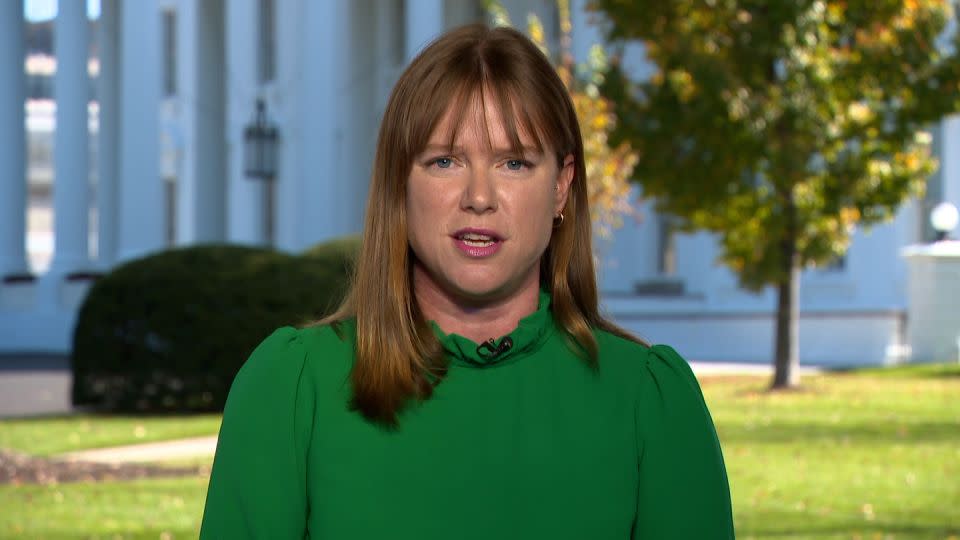
If you’re the Biden campaign, you probably didn’t see anything in tonight’s debate that changes the likelihood that former President Donald Trump will be the Republican nominee. What you did see is a Republican field that refuses to take on one of their biggest vulnerabilities in the general election: Their support for abortion bans.
There was not a single question tonight about the issue that has defined every election since the fall of Roe v Wade in June of 2022. Republicans can ignore it in their own primary debate, but they can’t ignore it at the ballot box.
The Biden campaign should call out that omission, press the issue with media and force the Republican candidates to answer for their extreme positions; they all have past votes and quotes supporting bans of some sort.
The president’s campaign can also use any number of moments throughout the evening to reinforce its message that the GOP is Trump’s party and that MAGA extremism is the cost of admission to be a Republican today.
Three of the four candidates didn’t speak up to say that Trump promising to be a dictator on day one was disqualifying, and Florida Gov. Ron DeSantis seemed to argue that Trump didn’t govern like enough of a dictator when he was in office and a President DeSantis would fix that. Only former New Jersey Gov. Chris Christie made a sustained and consistent argument against Trump throughout the debate, as he has in previous debates – and it doesn’t seem to be moving his numbers in the right direction.
For the Biden campaign, tonight gave them good fodder to push on issues that are general election vulnerabilities for Republicans and continue to paint the GOP as extreme.
Kate Bedingfield served as White House communications director in the Biden administration and was the deputy campaign manager on Biden’s 2020 presidential campaign.
Sophia A. Nelson: Haley showed she’s still her party’s best bet in November
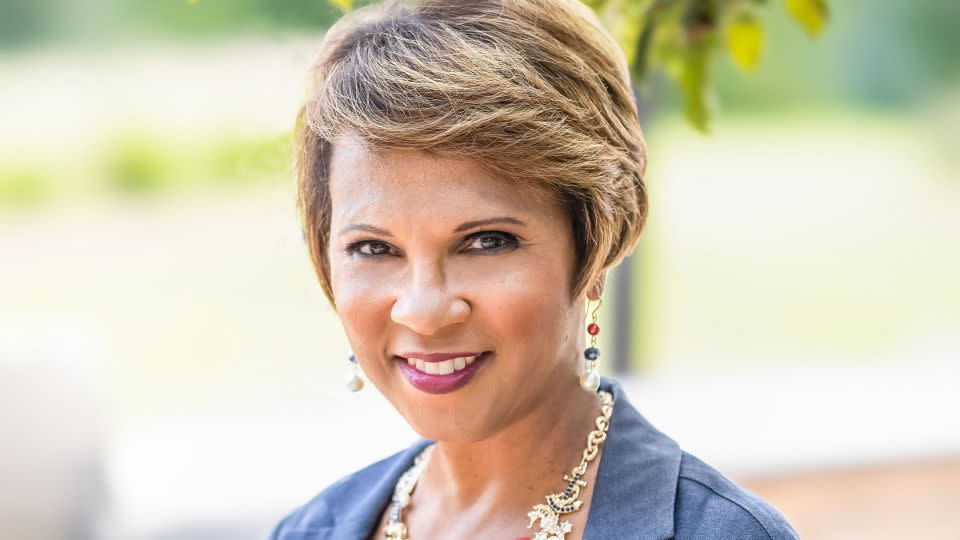
Nikki Haley came under hostile fire in the GOP debate Wednesday, attacked from all sides by the other candidates. But as in the previous debates, it was Vivek Ramaswamy who went after the former UN ambassador with sexist and ugly attacks.
Former New Jersey Governor Chris Christie’s vigorous defense of Haley was a powerful moment. Christie scored big points — and likely made inroads with millions of college-educated women who know what sexism feels like, coming from the likes of an obnoxious smart-mouth like Ramaswamy.
Christie remained focused like a laser beam on the absent GOP front runner, former President Donald Trump, who is leading by over 40 points nationally. He tried to goad his three GOP rivals into answering whether Trump was fit to hold the presidency, but none of them would be drawn, no matter how hard he pressed.
Meanwhile, Ramaswamy arduously — and falsely — insisted that the 2020 election was stolen. Let’s hope that Ramaswamy, who seems to offend everyone, has made his last showing on a national debate stage. He is not just divisive but — to borrow a term from former President Donald J. Trump — he’s the epitome of a “nasty” man.
In addition to being the only woman, Haley looked like the lone adult on the stage. She kept her cool while the male candidates barked and pointed fingers at one another.
Yes, Haley took some hits Wednesday night. But over the course of the debate, she played it smart, showing once again that if the GOP hopes to win against Joe Biden next November, she’s the party’s best bet.
Sophia A. Nelson is a former House GOP Congressional Investigative Committee Counsel and author of “ePluribus One: Reclaiming our Founders’ Vision for a United America.”
Jill Filipovic: How Haley won the gender war
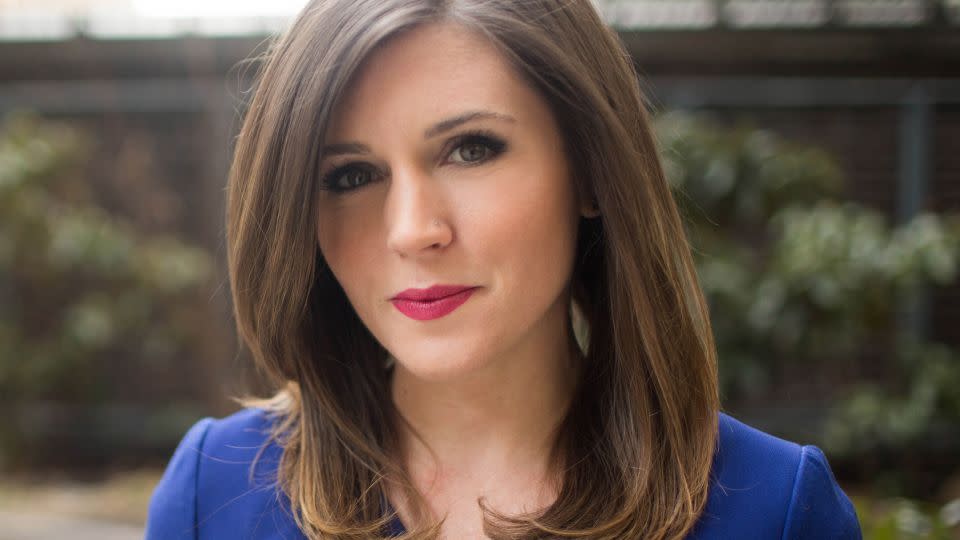
In the Republican presidential debate Wednesday night, one candidate was the clear target of most the ire. It wasn’t the far-and-away frontrunner, former President Donald Trump, who didn’t even bother showing up. It was Nikki Haley, the former UN ambassador and former governor of South Carolina, who was hit with blow after blow from Florida Gov. Ron DeSantis and political newcomer Vivek Ramaswamy.
Haley is fair game for criticism. She is, after all, running for president. In New Hampshire and South Carolina, she’s running ahead of all three of the men on stage Wednesday night; in Iowa, she’s neck-and-neck with DeSantis. But the attacks on Haley were less measured critique than hostile indignation, a tone that DeSantis and Ramaswamy seemed to largely reserve for their attacks on her.
Ramaswamy was smarmy with everyone, but seemed particularly antagonistic to Haley, whom he has personally attacked throughout his campaign.
Despite the barrage, Haley held her own on stage, at one point refusing to even dignify Ramaswamy’s bashings with a response. The audience loved it, laughing and applauding in response.
Haley is striking a difficult balance, wanting to come across as a Thatcher-esque figure – a conservative woman who gets things done – without being painted as too feminist, domineering or schoolmarmish. Her dismissal of Ramaswamy fit the bill: She came off as above the fray, while he looked like an irritating child the adults decide is best ignored.
But she wasn’t the only one speaking in her defense. Former New Jersey Gov. Chris Christie, who seems to be running less to win than to be a voice of anti-Trump reason, defended Haley at length from Ramaswamy at one standout moment. This, too, had a gendered element: Christie taking on the role of white knight, swooping into to defend Haley’s honor.
Perhaps he would have done the same for any other politician he respected. But the optics – the sense of Christie as a stand-up guy – wouldn’t have been quite as strong.
In a vacuum, this GOP debate would suggest that while the party hasn’t moved forward on women’s rights, it has progressed on its treatment of individual powerful women. After all, the three debate moderators were female, and while Haley was dog-piled by DeSantis and Ramaswamy, she wasn’t treated to the kind of hostile sexist attacks and condescension women in politics have so often seen, perhaps most notably 2016 Democratic presidential nominee Hillary Clinton at the hands of Trump.
But Wednesday’s debate was far from the full picture: The most notoriously noxious and sexist candidate, who continues to enjoy the enthusiastic backing of his party and its voters, wasn’t even on the stage.
Jill Filipovic is a journalist based in New York and author of the book “OK Boomer, Let’s Talk: How My Generation Got Left Behind.”
Patrick T. Brown: Calvin Coolidge? Really?
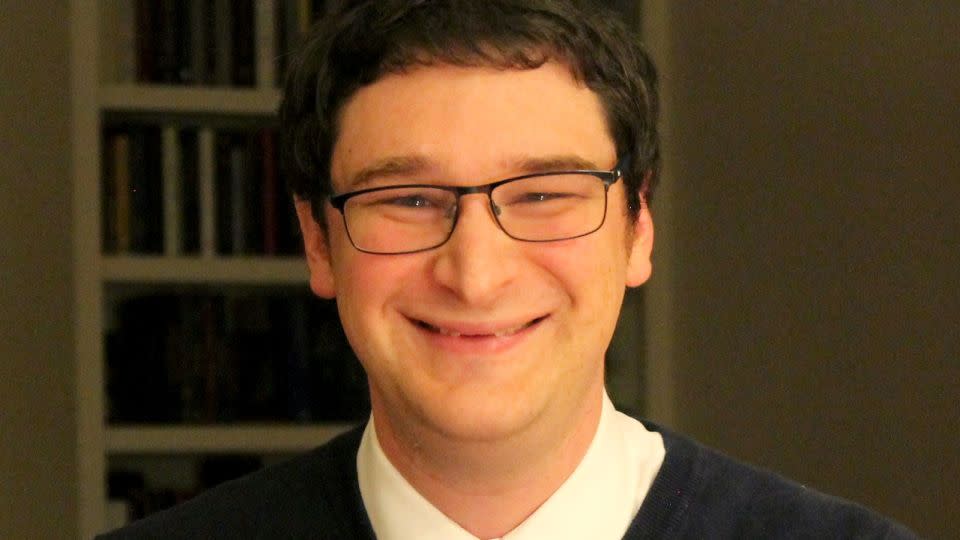
Florida Gov. Ron DeSantis may have had his best debate of the campaign Wednesday night – whether it was too little, too late will be up to the voters. His first answer out of the gate dinged former UN Ambassador Nikki Haley for her distance from the Republican Party base on issues like gender transition surgeries for youth, and he wasn’t afraid to mix it up with former New Jersey Gov. Chris Christie and entrepreneur Vivek Ramaswamy at various points throughout the evening.
But DeSantis’ final answer to a moderator’s question left me questioning to what extent he has learned the lessons of former President Donald Trump. Asked which president he’d most like to model himself after, DeSantis avoided the predictable mention of Ronald Reagan by citing Calvin Coolidge, a favorite of limited-government-type conservatives. “Silent Cal knew the proper role of the federal government,” he said.
That may be so. But a Coolidge-inspired approach to federal policy – one that prioritized saying little and focusing on cutting spending – is one better fit for the Republican Party of the tea party era than for the brash, muscular vision embraced by Trump.
Applauding “Silent Cal” may win the hearts of conservative wonks, but it suggests that the Florida governor may still hew a little too closely to the pre-Trump consensus to appeal to the former president’s supporters.
Patrick T. Brown is a fellow at the Ethics and Public Policy Center, a conservative think tank and advocacy group based in Washington, DC.
Roxanne Jones: Haley’s war talk won’t win her votes
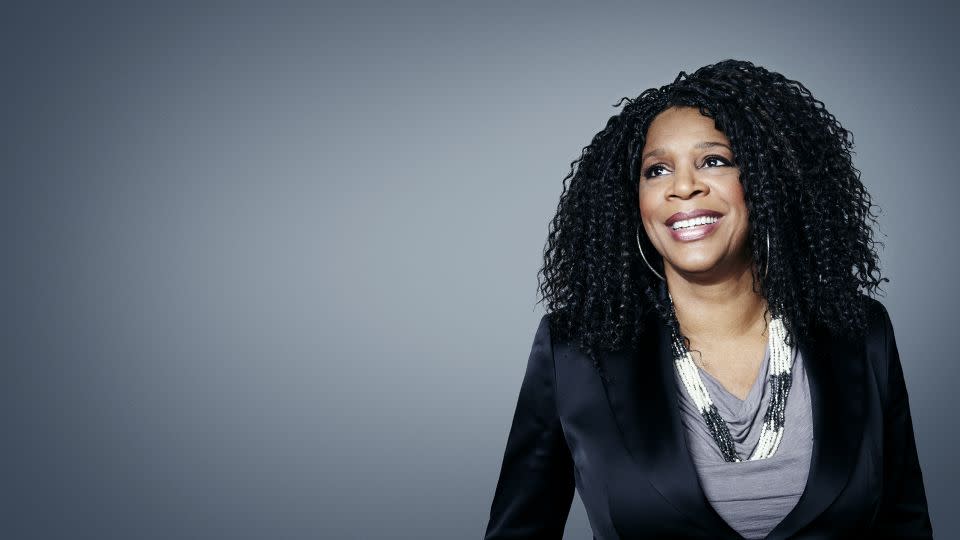
Nikki Haley has often sounded like the most commonsense presidential candidate on the GOP presidential debates and Wednesday night wasn’t the exception. There’s no doubt this explains her surprising rise in national polls, challenging Florida Gov. Ron DeSantis for second place behind former President Donald Trump.
But Haley fell flat at the fourth and final GOP debate Wednesday night at the University of Alabama in Tuscaloosa. For me, the former US ambassador lost major points when the talk turned to war and she responded like a Doomsday despot.
According to Haley, America should send troops to “take out the cartel in Mexico.” She said she would take a much different and more aggressive approach to deal with Iran, China, Ukraine and Hamas in Gaza. “We need to make sure that we have full clarity that there is a reason again that the Taiwanese want to help Ukrainians because they know if Ukraine wins, China won’t invade Taiwan. There’s a reason the Ukrainians want to help Israelis because they know that if Iran wins, Russia wins. These are all connected but what wins all of that is a strong America, not a weak America. And that’s what Joe Biden has given us.”
For Haley, whose husband, National Guardsman Maj. Michael Haley, is now dispatched in Djibouti in support of Operation Enduring Freedom, Horn of Africa, America’s military might is limitless. Yet, her war mongering felt tone deaf considering America’s waning support for military intervention around the world.
In every GOP debate, Haley has gained momentum with her sharp intellect and ability to handle herself under attacks. And though, she continued to show she could go toe-to-toe with her critics, it’s doubtful her performance Wednesday night was enough to convince Republican voters that she’s the right woman for the job. In the end, after all the bickering and cheeky insults, it’s seemingly still Trump—polling at almost 60% nationally—whom most GOP voters want to see as their nominee.
Roxanne Jones is CEO of the Push Marketing Group and talks politics, sports and culture weekly on Philadelphia’s WURD radio.
Jeff Yang: All four candidates agree on who’s America’s enemy No. 1

During Wednesday night’s fourth and final GOP presidential debate it was interesting to see the clear line drawn down the middle of the stage separating the quartet of candidates into two factions: Chaos candidates stage left – Florida Gov. Ron DeSantis and Vivek Ramaswamy, both of whom have seemingly interpreted the mantra “go big or go home” as an exhortation to triple down on absurd assertions and wild promises – and Gravitas Grabbers stage right – former US ambassador Nikki Haley and former New Jersey Gov. Chris Christie, seeking to play grownup and look presidential, aiming measured potshots at former president Donald Trump, while trying to fly above the ad hominems and spitballs being tossed cross-stage from the other wing.
The split between Ramaswamy and DeSantis was most prominent in the debate segment focused on China. DeSantis warned of China exporting authoritarianism around the world after invading and toppling Taiwan. “The 21st century has to be an American century. We cannot let it be a Chinese century,” he thumped.
Ramaswamy, meanwhile, accused Haley of being supported by those who “grovel to China” and said he stood by his bizarre proposal to open a branch of the NRA in Taiwan and give every citizen a gun and training on how to use it, which Christie sarcastically rebutted by noting that the US doesn’t have “constitutional authority over Taiwan to give them a Second Amendment,” before pivoting to a critique of Trump’s China tariffs as responsible for skyrocketing inflation (so it wasn’t just Bidenomics after all!)
Haley’s language was similarly restrained, noting that her priorities to rein in China included winning the war in Ukraine, building a pan-Asian regional alliance and moving strategic manufacturing to friendly countries. (And, in an admission that surely won’t play well with the base, she noted that the supply chains for masks and Covid testing both run through China, highlighting their critical importance in combating the pandemic.)
Nevertheless, all four were clearly in agreement that China should be seen as America’s enemy number one. Given that a significant number of Democrats also hold that belief, if you’re Asian American and one of the probably few people who watched this debate, the exchange on stage felt like an uncomfortable preview of the anti-China rhetoric that will be employed by members of both parties as a means to unite voters around a common enemy, once campaign season begins in earnest.
Jeff Yang is the co-author of the bestselling book “RISE: A Pop History of Asian America from the Nineties to Now.”
Carrie Sheffield: The thing that was lacking on the debate stage

With sparks flying at each other instead of at the malaise gripping our country, Wednesday’s GOP debate sadly lacked consistent voices offering a bold, strong, positive vision.
Much of the debate seemed wasted energy, with candidates attacking one another instead of dissecting progressivism and the Biden agenda, which has resulted in President Joe Biden’s incredibly low poll numbers. Americans hold a dismal view of the president’s governance, as inflation-fueled Bidenomics helps push home ownership out of reach for millions.
When the candidates did tackle problems, they offered a smart diagnosis. Both entrepreneur Vivek Ramaswamy and Florida Gov. Ron DeSantis correctly identified what Ramaswamy called “bureaucrats in those three-letter agencies that are writing regulations that Congress never gave them the authority to write,” and DeSantis called out “this massive fourth branch of government, this administrative state which is imposing its will on us and is being weaponized against us.”
By reforming regulatory red tape, some economists estimate the US economy could expand by hundreds of billions of dollars each year. But the candidates didn’t offer a more proactive vision of their own formulas for economic success.
The debate also saw much talk about Israel and Hamas – and with it another missed opportunity. The candidates wasted a key moment to reach female voters by not pointing to some progressives hypocritically claiming to support women but hedging on protecting Israeli women from rape. This was an opportune time for Republicans to show women who truly stands with us. It is conservatives who offer resolute and unwavering commitment to protect women from bodily harm and sexual degradation.
Instead of a circular firing squad, conservatives need greater discipline and focus against Biden to defeat progressivism in 2024 and offer a positive vision of what they stand for, not just what they’re against.
Carrie Sheffield is a senior policy analyst at Independent Women’s Voice.
Susanne Ramirez de Arellano: A Trump-like Republican response on immigration

During Wednesday’s presidential debate, entrepreneur Vivek Ramaswamy decried what he described as President Joe Biden’s authoritarian streak. “We’re marching toward fascism under Biden,” Ramaswamy declared.
That statement was rich, coming the day after a town hall in Iowa at which the frontrunner for the Republican nomination, former President Donald Trump, said he would act as a dictator on “day one” of a new presidential term. “We’re closing the border and we’re drilling, drilling, drilling.’ After that I’m not a dictator,” Trump said.
Trump and his allies have also kept open the possibility of renewing his administration’s policy of separating families at the southern US border.
The word “dictator” should not be taken lightly by anyone. For many voters, especially Latinos, the word conjures images of authoritarian rulers like Chilean dictator Augusto Pinochet — not an American president.
I was expecting that the candidates would address what Trump said. They didn’t. Chris Christie called Trump a dictator, and that’s where the discussion ended.
In fact, on immigration, the Republican candidates at Wednesday’s debate sounded a lot like Trump. They demonized immigrants, many of whom are Latinos. And they didn’t stay far from what the former president has said he would do: deport huge numbers of migrants and militarize the border.
Catch and deport, Ambassador Nikki Haley said on Wednesday, is how she’d handle the immigration question. Florida Gov. Ron DeSantis proclaimed he would adopt a policy of shooting on sight any undocumented immigrant crossing the border, who might or might not be a drug trafficker. There was little in any of it that seemed likely to sway many Latino voters to embrace the Republican presidential candidate.
According to a recent Axios-Ipsos Latino Poll conducted with Telemundo, 32% of all respondents said neither Democrats nor Republicans care about Latinos. That result would seem to raise the stakes for both parties, as they attempt to win the support of this vitally important bloc of voters.
The thinking of the GOP contenders seemed to be that Latinos, a key voting bloc, are abandoning the Democrats for the Republican Party, out of a fear that the Democratic Party’s “wokeness” will lead to some sort of socialist authoritarianism.
But, nonpartisan and unaffiliated Latino voters, many of whom are young voters, are fast becoming one of the largest swing voter groups in the next elections. And there was little in Wednesday night’s debate that would lead them – or other Latinos – to conclude that the Republican candidates on the stage, or the party in general, have their best interests at heart.
Susanne Ramirez de Arellano, a writer and cultural critic, is a former news director for Univision Puerto Rico.
W. James Antle III: The sound and the fury of Christie’s attacks

Chris Christie garnered rave reviews for his no-hold-barred performance in the fourth Republican presidential debate. The former New Jersey governor has made taking the fight to former President Donald Trump – who has yet to show up to a debate – central to his campaign, and he did so again on Wednesday.
Yet as he reprised his role in the fourth presidential debate Wednesday night, he was unable to dispute a key point made by moderator Megyn Kelly: that broadsides against Trump have done little to diminish the former president’s popularity with Republicans.
If anything, Christie has probably damaged his own.
Christie even seemed to concede the point. “It’s often very difficult to be the only person on the stage who’s telling the truth,” he replied, seeming to implore higher-polling candidates — who he said may “have future aspirations, maybe those future aspirations are now or maybe they’re four years from now” — to join him in targeting Trump.
Ron DeSantis and Nikki Haley, now locked in a fierce battle for second place, will eventually have to figure out how to resolve this same quandary. A Christie-style full frontal assault against Trump is clearly a political loser in a Republican primary.
But to beat Trump, they will have to figure out how to run against him, and their more subtle criticisms of “chaos” or the former president’s age have only gotten them so far.
The candidates all complain about the polls, but they can read them as well as anyone else.
W. James Antle III is the politics editor of the Washington Examiner and author of “Devouring Freedom: Can Government Ever Be Stopped?”
Lanhee J. Chen: Voters are looking for health care solutions. The GOP contenders came up short.
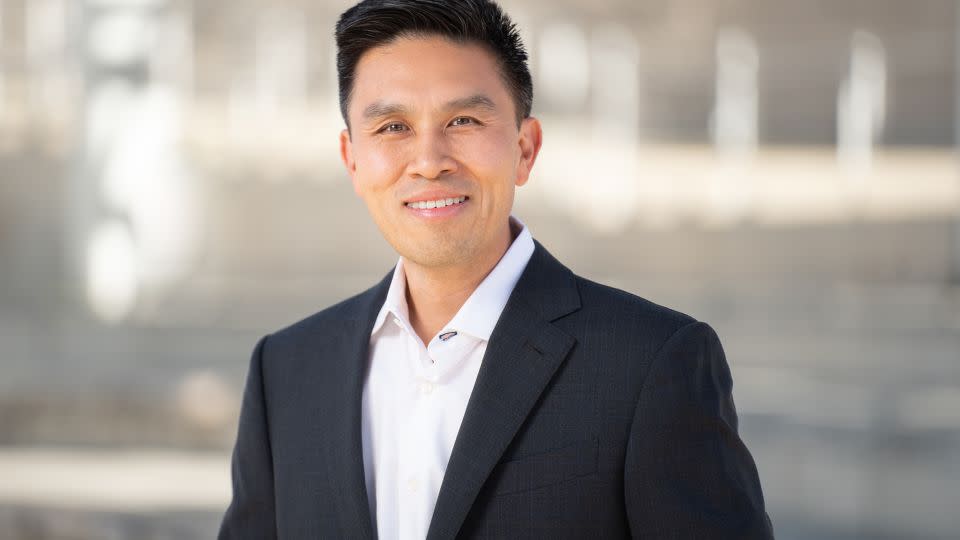
Health care did not come up until the end of Wednesday night’s presidential debate, but the issue has the potential to vex Republicans well into next year’s general election in November. The topic has become a major focus of the 2024 campaign — and the target of attacks from President Joe Biden and his surrogates — after former president Donald Trump declared last week that he would get rid of Obamacare if elected again.
None of the answers from the GOP presidential contenders so far should give Republican voters comfort that their nominee, whether it ends up being Trump or one of the contenders on the debate stage, will be poised to adequately rebut those attacks.
Florida Gov. Ron DeSantis promised a new and better alternative to Obamacare but wasn’t able to provide additional details on exactly how he would lower health costs, which have climbed since Obamacare’s passage in 2010. Nor did he appear able to offer consumers more choice, something that the law has curtailed.
Vivek Ramaswamy made some valid points about a lack of transparency in our health care system but offered few specific ideas about how to address this weakness. And his indulgence of crazy conspiracy theories distracted from any strong answers he may have given.
Republican candidates would be smart to get smart on health care issues, and fast. There’s no dearth of ideas from conservative policy analysts and thinkers offering market-based reform on specific ways to expand incentives for health savings, increase transparency in health spending, and lower costs. These would all be ways to improve the health system in ways that Obamacare did not and cannot.
Lanhee J. Chen, PhD, is a regular contributor to CNN Opinion and the David and Diane Steffy Fellow in American Public Policy Studies at Stanford University’s Hoover Institution.
For more CNN news and newsletters create an account at CNN.com

